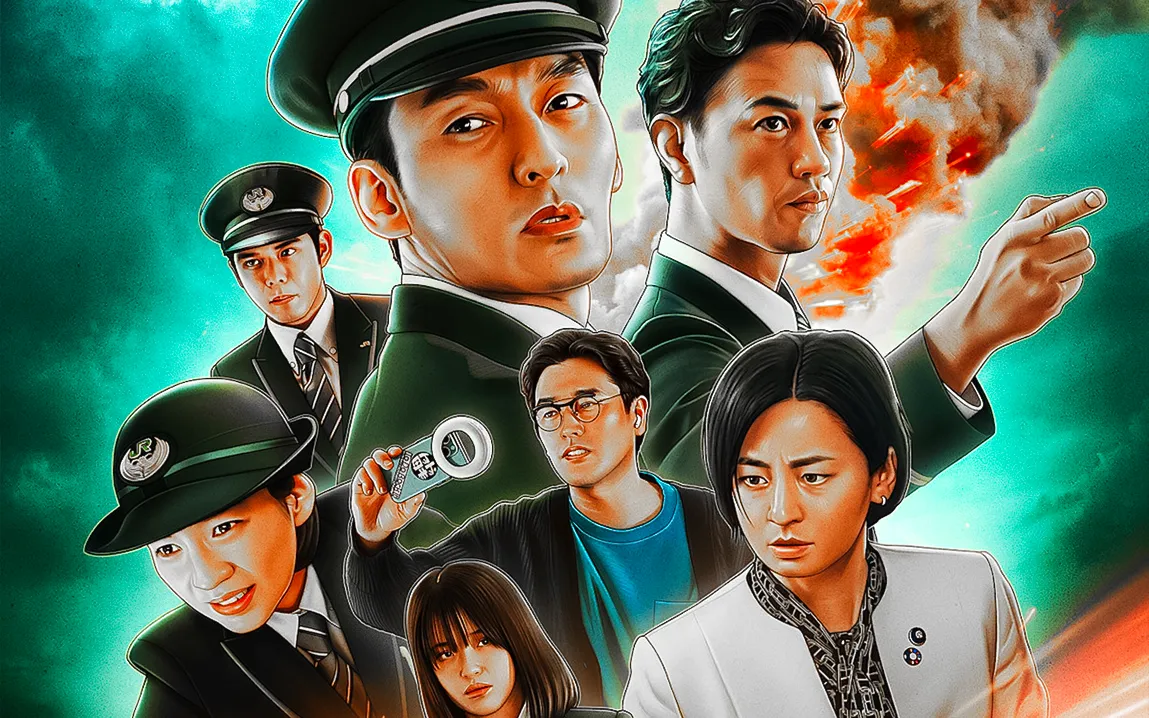Netflix’s new Japanese action thriller, Bullet Train Explosion, is more than a fast-paced ride. It reflects human dignity, personal rebellion, and creative freedom. Director Shinji Higuchi opens up about the long journey to bring this project to life, casting pop icon Tsuyoshi Kusanagi, and the moral weight behind his filmmaking.
A Reboot with Real Stakes
Bullet Train Explosion is a high-octane remake of the 1975 film The Bullet Train, which served as a key inspiration for Hollywood’s Speed. In Higuchi’s retelling, a Tokyo-bound bullet train becomes the target of a deadly plot. Bombs planted on board will detonate if the train slows below 100 kilometers per hour. While the tension builds on-screen, Higuchi layers the action with deeper questions about survival, mortality, and choice.
“The characters may not be real, but when we write their lives, we have to take responsibility for how we end or save them,” said Higuchi, speaking to Deadline. “That moral weight comes with telling stories.”
Drawing From a Troubled Youth
For Higuchi, the existential themes of the film are a result of real-life experiences. He remembered his troubled adolescence when he was detached from the world but still optimistic about a future to come.
“When I was a teenager, I hated this world,” he said. “But I also believed maybe things would improve as I grew older. That forward-looking mindset is something I wanted to reflect in the film’s characters.”
Though he started out in public service, Higuchi knew he belonged in the creative industry. With few examples of alumni in the arts at his school, he broke from expectations and pursued filmmaking, inspired by creators like Steven Spielberg and Ultraman legend Eiji Tsuburaya.
A Long Road to Casting Tsuyoshi Kusanagi
One of the film’s most striking achievements is the casting of Tsuyoshi Kusanagi, a former member of SMAP, one of Japan’s most iconic boy bands. Higuchi had wanted Kusanagi in the role for nearly 20 years, but management politics kept the project on hold.
“When Tsuyoshi left his old agency, we finally had a chance,” Higuchi explained. “His former management was extremely powerful and casting him could offend the wrong people. Only indie films had the freedom to take that risk.”
That changed when Netflix entered Japan’s film scene. With fewer ties to the traditional entertainment hierarchy, Netflix offered the budget and flexibility Higuchi needed.
“Netflix was able to leap over the industry politics,” he said. “So even though Bullet Train Explosion is a big-budget film, we could finally cast him.”
Looking Ahead: Original Stories, Creative Risks
Despite his success with established IP, Higuchi wants to focus on original screenplays, though he admits that funding remains a major challenge in Japan.
“People want familiar stories. That’s the safer bet for investors,” he said. “But I want to tell something new, something that hasn’t been done before — even if it means taking bigger risks.”
He also noted a trend he admires: Japanese theater writers moving into film, often bringing sharp character work and investor support. “They focus on the characters, not just the plot. That’s why their stories stick.”
A Filmmaker with a Vision
Higuchi remains hopeful about Japan’s creative future, whether by pushing boundaries himself or supporting a new generation of bold storytellers. With Bullet Train Explosion, he’s not only reimagined a classic, but he’s also made a statement about persistence, creativity, and the human spirit behind every onscreen explosion.



